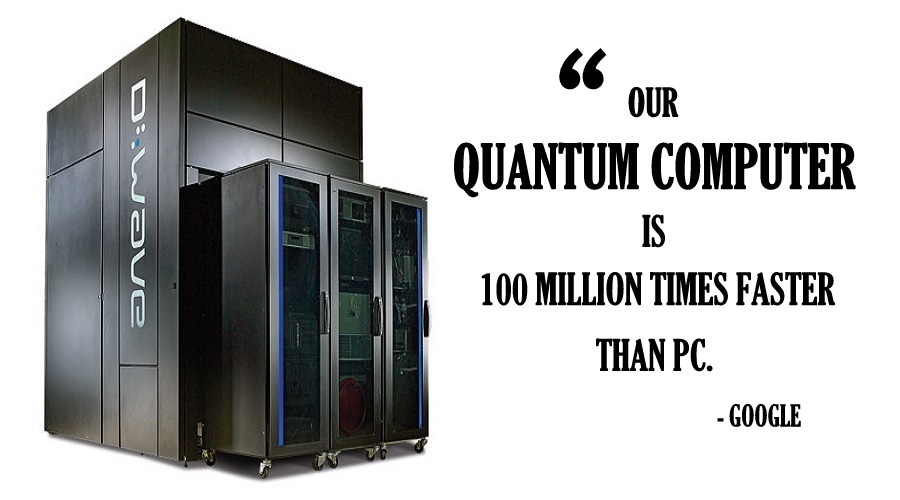Introduction: D-Wave is a pioneer in quantum computing, providing cutting-edge solutions to some of computer science’s most demanding issues. The Ocean program is important to D-Wave’s ecosystem, a collection of open-source Python tools that enable developers to take advantage of the Advantage quantum computer’s capabilities. Ocean, which is available through the Ocean Software Development Kit (SDK) on both the D-Wave GitHub store and the Leap quantum cloud service, provides a solid foundation for studying and leveraging quantum computing’s transformative potential.
Understanding the Ocean Program
The Ocean program is designed to make quantum computing accessible and practical for a wide range of users, from researchers to industry professionals. It provides a comprehensive collection of Python tools and libraries that facilitate the development, testing, and deployment of quantum applications. These tools are meticulously crafted to integrate seamlessly with D-Wave’s quantum hardware, ensuring that users can efficiently leverage the power of quantum computing.
Key Features of the Ocean Program
Open-Source Accessibility: The Ocean SDK is open-source, fostering a collaborative environment where developers can contribute to and enhance the toolset. This openness encourages innovation and rapid development within the quantum computing community.
Python Integration: By utilizing Python, a widely-used and versatile programming language, Ocean lowers the barrier to entry for quantum computing. Python’s simplicity and readability make it an ideal choice for both novice and experienced developers.
Comprehensive Toolset: The Ocean program includes a variety of tools designed to address different aspects of quantum application development. This includes problem formulation, quantum annealing, hybrid computing, and more. Each tool is optimized to work in harmony with D-Wave’s quantum processors.
Seamless Integration with D-Wave’s Advantage: The Ocean SDK is tailored to exploit the capabilities of the Advantage quantum computer, D-Wave’s most advanced system. This ensures that users can solve complex optimization problems more efficiently and accurately.
Support for Hybrid Solutions: Recognizing that not all problems can be solved purely by quantum means, Ocean supports hybrid solutions that combine classical and quantum computing. This approach leverages the strengths of both paradigms to achieve optimal results.
How to Get Started with the Ocean Program
Getting started with the Ocean program is straightforward, thanks to its availability on the D-Wave GitHub store and the Leap quantum cloud service. Here are the steps to begin your quantum journey:
Access the Ocean SDK: Visit the D-Wave GitHub store to download the Ocean SDK. The repository includes detailed documentation and examples to help you get started.
Set Up Your Environment: Ensure you have a compatible Python environment set up on your system. Follow the installation instructions provided in the Ocean documentation to install the necessary dependencies.
Explore the Tutorials: The Ocean SDK comes with a wealth of tutorials and example code. These resources are invaluable for understanding how to formulate problems, submit them to the quantum computer, and interpret the results.
Utilize the Leap Quantum Cloud Service: For those who prefer a cloud-based approach, the Leap quantum cloud service provides seamless access to D-Wave’s quantum hardware. Leap offers an integrated development environment, real-time problem submission, and powerful analytics tools.
Join the Community: Engage with the vibrant community of quantum computing enthusiasts and professionals. Participate in forums, contribute to the Ocean SDK, and collaborate on projects to further your understanding and skills.
Real-World Applications of the Ocean Program
The Ocean program is not just a theoretical tool; it has practical applications across various industries. Here are a few examples:
Optimization Problems: Quantum computing excels at solving complex optimization problems, such as those found in logistics, finance, and manufacturing. Ocean enables the formulation and solving of these problems using D-Wave’s Advantage system.
Machine Learning: Quantum-enhanced machine learning algorithms can process and analyze vast datasets more efficiently. Ocean provides the tools needed to develop and test these algorithms on quantum hardware.
Material Science: Researchers in material science can use quantum computing to simulate molecular structures and interactions, leading to the discovery of new materials with desirable properties.
Cryptography: Quantum computing offers new approaches to cryptographic problems, potentially leading to more secure communication systems. Ocean supports the development of quantum-resistant cryptographic algorithms.
Conclusion
The Ocean program by D-Wave represents a significant advancement in making quantum computing accessible and practical. Through its open-source Python tools and seamless integration with the Advantage quantum computer, Ocean empowers engineers to explore and utilize the transformative power of quantum computing. Whether you are a researcher, developer, or industry professional, the Ocean program provides the resources and support needed to solve complex problems and drive innovation in the quantum era. Embrace the future of computing with the Ocean program and unlock the potential of D-Wave’s quantum technology.
Frequently Asked Questions about the Ocean Program and D-Wave’s Advantage Quantum Computer
1. What is the Ocean program?
The Ocean program is a suite of open-source Python tools designed to help engineers develop and run quantum applications on D-Wave’s Advantage quantum computer. It is available through the Ocean Software Development Kit (SDK) on the D-Wave GitHub store and the Leap quantum cloud service.
2. How can I access the Ocean SDK?
You can access the Ocean SDK by visiting the D-Wave GitHub store to download the tools. Additionally, you can use the Leap quantum cloud service for a cloud-based development environment.
3. What programming language does the Ocean program use?
The Ocean program utilizes Python, a popular and versatile programming language, which makes it accessible for both beginners and experienced developers.
4. Can the Ocean program be used for hybrid quantum-classical solutions?
Yes, the Ocean program supports hybrid solutions that combine classical and quantum computing to leverage the strengths of both paradigms for optimal problem-solving.
5. What types of problems can be solved using the Ocean program and D-Wave’s Advantage quantum computer?
The Ocean program can be used to solve a variety of complex problems, including optimization problems, machine learning tasks, material science simulations, and cryptographic challenges.


